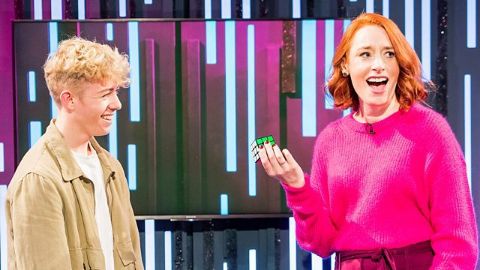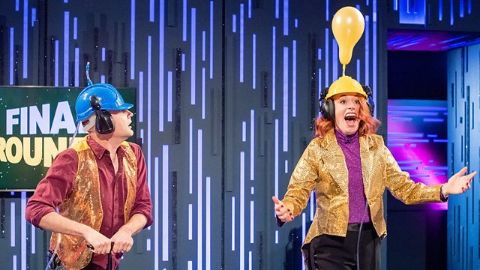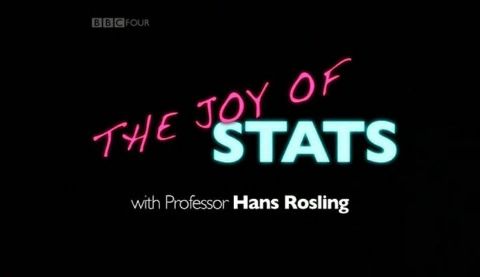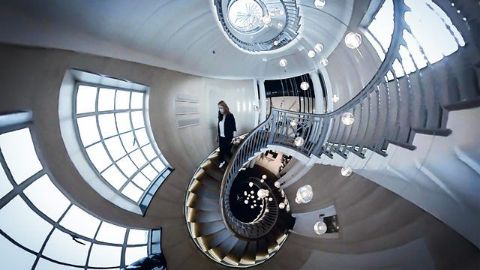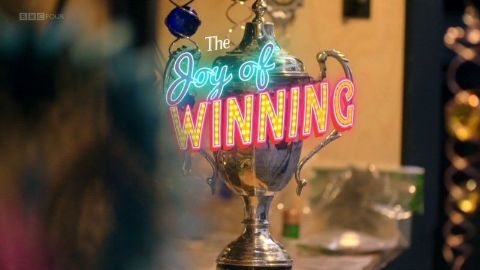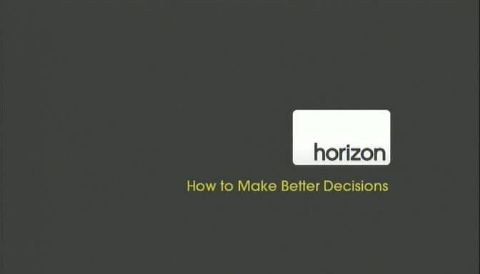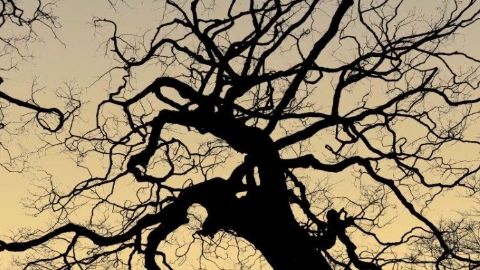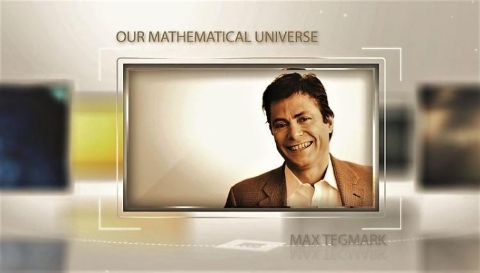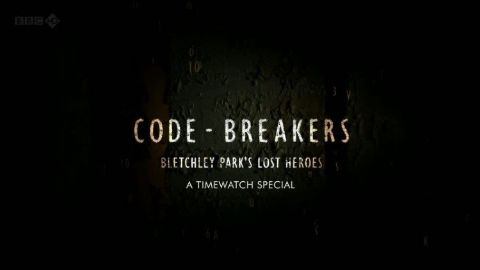MATH • 29 videos
Zero and infinity. These seemingly opposite, obvious, and indispensable concepts are relatively recent human inventions. Discover the surprising story of how these key concepts that revolutionized mathematics came to be – not just once, but over and over again as different cultures invented and re-invented them across thousands of years.
2022 • Math
Psychedelics have impacted history for as long as there have been people wanting to get their minds blown. Discover who's been under the influence from Salem witches and Santa Claus to 1960s hippies and Steve Jobs, and find out how mind-altering substances have changed our world.
S1E2 • History By The Numbers • 2021 • Math
Where earth meets sky: how the most thrilling and dangerous point at the top of the world continues to fascinate, and what it takes to conquer the Big One.
S1E1 • History By The Numbers • 2021 • Math
Dr Hannah Fry explores the limits of our control, from dangerous miscalculations to creating and spotting fake videos, and questions how far we should be going with our mathematical skills. A gravity-defying BMX stunt kick-starts the debate around trusting the numbers, and launches us into an investigation of just how sure we can be about anything in our messy world. Together with maths comedian Matt Parker, Hannah uses flaming balloons and gigantic slices of melting cheese to get to the bottom of the guesswork used in real world calculations. A visiting drone zips through the corridors of the historic Royal Institution building, introducing the mother of all drones, a human-sized machine that delivers urgent parcels, and we welcome the team designing driverless helicopters and buying up London rooftops to prepare for the future. But these physical challenges are just the beginning of the debate on handing control over to machines. Hannah explores whether human jurors or robots make fairer decisions, and welcomes Atima Lui, who is on a mission to design the most unbiased facial detection software in the world, which will say goodbye to the 'fast track for white people' at automatic passport gates. Hannah dives into the issues around privacy in our modern world, with Glow Up make-up star Tiffany Hunt making a member of the audience invisible to CCTV, while Hannah explores the truth behind cookies and anonymity online. Finally, she delves into the world of fake news, to separate the truth from the lies. Leading deep fake creators team up with the Christmas Lectures to create a television first – a custom-made deep fake video of a child in the audience, highlighting our ability to use maths to warp reality however we please. Hannah ultimately explores who the real winners are, in an escalating arms race of mathematical tricks.
S1E3 • Royal Institution Christmas Lectures: Secrets and Lies - The Hidden Power of Maths • 2019 • Math
Dr Hannah Fry reveals how data-gobbling algorithms have taken over our lives and now control almost everything we do, without us being aware of it. Pitching the UK speed-cubing champion against a machine in the opening seconds of the lecture, Hannah sets the pace for a rapid voyage through this superhuman world. Hannah teams up with famed YouTuber Tom Scott to create a viral video and decipher YouTube's secret algorithm, comes face to face with four-legged guests to put animal image recognition machines to the test, and reveals how the NHS is matching organ donors in chains across the country to save hundreds of lives. But the breakthroughs are not restricted to the real world. Bafta award-winning special guests reveal the secrets of CGI in films such as The Avengers and Lord of the Rings, and supersized laser illusions bring the Royal Institution to life. An unexpected feathery guest opens our eyes to a new type of coding, where computers can be trained like animals using tasty rewards, with maths comedian Matt Parker and computing expert Dr Anne-Marie Imafidon bringing the topic to life. Finally, Hannah reveals how we've all been training up Google's AI in this way for years without realising it, and discovers how Google Health is using big data to give doctors a helping hand. The power of algorithms is undeniable. Hannah ultimately discovers how we can bend the world to our will and make anything possible, with a bit of mathematical thinking.
S1E2 • Royal Institution Christmas Lectures: Secrets and Lies - The Hidden Power of Maths • 2019 • Math
Kicking off the lectures with a mind-boggling stunt to prove how counterintuitive our gut instincts can be, Hannah launches into a lecture full of daring live experiments and surprising discoveries. From predicting the chance of snow at Christmas to dodging erupting volcanoes with Prof Chris Jackson, Hannah explores whether we really can predict the future. She meets the maths gurus behind Liverpool Football Club's winning streak to spill the beans on how analysing the numbers can give a team an edge in the Premier League, and reveals the tricks to perfecting your Christmas cracker pull to win the prize every time. Hannah also gathers tips from mind-performance coach Dr Michael Gervais, the 'secret weapon' crafting Olympic athletes' lucky mindsets, and the man responsible for Felix Baumgartner's jump from space, when 'first time lucky' meant life or death. Enrolling the help of maths comedian Matt Parker for the pinnacles of the lecture, the duo find order in unruly crowds, and whittle the audience down to the luckiest person in a series of challenges, before finally putting them to the test to prove whether they truly are one in a million. Using a host of maths tricks - from probability to game theory - Hannah discovers if we can in fact make our own luck, and ultimately shares the secrets to help us all lead luckier lives.
S1E1 • Royal Institution Christmas Lectures: Secrets and Lies - The Hidden Power of Maths • 2019 • Math
Documentary which takes viewers on a rollercoaster ride through the wonderful world of statistics to explore the remarkable power thay have to change our understanding of the world, presented by superstar boffin Professor Hans Rosling, whose eye-opening, mind-expanding and funny online lectures have made him an international internet legend. Rosling is a man who revels in the glorious nerdiness of statistics, and here he entertainingly explores their history, how they work mathematically and how they can be used in today's computer age to see the world as it really is, not just as we imagine it to be.
2010 • Math
Hannah explores a paradox at the heart of modern maths, discovered by Bertrand Russell, which undermines the very foundations of logic that all of maths is built on. These flaws suggest that maths isn't a true part of the universe but might just be a human language - fallible and imprecise. However, Hannah argues that Einstein's theoretical equations, such as E=mc2 and his theory of general relativity, are so good at predicting the universe that they must be reflecting some basic structure in it. This idea is supported by Kurt Godel, who proved that there are parts of maths that we have to take on faith. Hannah then explores what maths can reveal about the fundamental building blocks of the universe - the subatomic, quantum world. The maths tells us that particles can exist in two states at once, and yet quantum physics is at the core of photosynthesis and therefore fundamental to most of life on earth - more evidence of discovering mathematical rules in nature. But if we accept that maths is part of the structure of the universe, there are two main problems: firstly, the two main theories that predict and describe the universe - quantum physics and general relativity - are actually incompatible; and secondly, most of the maths behind them suggests the likelihood of something even stranger - multiple universes. We may just have to accept that the world really is weirder than we thought, and Hannah concludes that while we have invented the language of maths, the structure behind it all is something we discover. And beyond that, it is the debate about the origins of maths that has had the most profound consequences: it has truly transformed the human experience, giving us powerful new number systems and an understanding that now underpins the modern world.
S1E3 • Magic Numbers: Hannah Fry's Mysterious World of Maths • 2018 • Math
Hannah travels down the fastest zip wire in the world to learn more about Newton's ideas on gravity. His discoveries revealed the movement of the planets was regular and predictable. James Clerk Maxwell unified the ideas of electricity and magnetism, and explained what light was. As if that wasn't enough, he also predicted the existence of radio waves. His tools of the trade were nothing more than pure mathematics. All strong evidence for maths being discovered. But in the 19th century, maths is turned on its head when new types of geometry are invented. No longer is the kind of geometry we learned in school the final say on the subject. If maths is more like a game, albeit a complicated one, where we can change the rules, surely this points to maths being something we invent - a product of the human mind. To try and answer this question, Hannah travels to Halle in Germany on the trail of perhaps one of the greatest mathematicians of the 20th century, Georg Cantor. He showed that infinity, far from being infinitely big, actually comes in different sizes, some bigger than others. This increasingly weird world is feeling more and more like something we've invented. But if that's the case, why is maths so uncannily good at predicting the world around us? Invented or discovered, this question just got a lot harder to answer.
S1E2 • Magic Numbers: Hannah Fry's Mysterious World of Maths • 2018 • Math
Hannah goes back to the time of the ancient Greeks to find out why they were so fascinated by the connection between beautiful music and maths. The patterns our ancestors found in music are all around us, from the way a sunflower stores its seeds to the number of petals in a flower. Even the shapes of some of the smallest structures in nature, such as viruses, seem to follow the rules of maths. All strong evidence for maths being discovered. But there are those who claim maths is all in our heads and something we invented. To find out if this is true, Hannah has her brain scanned. It turns out there is a place in all our brains where we do maths, but that doesn't prove its invented. Experiments with infants, who have never had a maths lesson in their lives, suggests we all come hardwired to do maths. Far from being a creation of the human mind, this is evidence for maths being something we discover. Then along comes the invention of zero to help make counting more convenient and the creation of imaginary numbers, and the balance is tilted in the direction of maths being something we invented. The question of whether maths is invented or discovered just got a whole lot more difficult to answer.
S1E1 • Magic Numbers: Hannah Fry's Mysterious World of Maths • 2018 • Math
How to have a happier life and a better world all thanks to maths, in this witty, mind-expanding guide to the science of success with Hannah Fry. Following in the footsteps of BBC Four's award-winning maths films The Joy of Stats and The Joy of Data, this latest gleefully nerdy adventure sees mathematician Dr Hannah Fry unlock the essential strategies you'll need to get what you want - to win - more of the time. From how to bag a bargain dinner to how best to stop the kids arguing on a long car journey, maths can give you a winning strategy. And the same rules apply to the world's biggest problems - whether it's avoiding nuclear annihilation or tackling climate change.
2018 • Math
We are bad at making decisions. According to science, our decisions are based on oversimplification, laziness and prejudice. And that's assuming that we haven't already been hijacked by our surroundings or led astray by our subconscious! Featuring exclusive footage of experiments that show how our choices can be confounded by temperature, warped by post-rationalisation and even manipulated by the future, Horizon presents a guide to better decision making, and introduces you to Mathematician Garth Sundem, who is convinced that conclusions can best be reached using simple maths and a pencil!
Mathematical formulas can be found in the arrangement of seeds on a sunflower, the structure of the spirals in the shells of certain marine animals, and the distribution of leaves around a plant stem. These formulas recur in nature from snowflakes to the stripes on a zebra.
Nature's Mathematics • 2017 • Math
Wherever we find patterns and symmetry in nature, we also find that nature conforms to certain rules. Rules that combine elegance with efficiency. Rules that shape trees and river estuaries alike, and that continue to baffle scientists by their often unfathomable ubiquity.
S1E1 • Nature's Mathematics • 2017 • Math
Renowned cosmologist Max Tegmark will take us on a journey through some of the greatest mysteries of our existence, and through the physics, astronomy and mathematics that are the foundation of his work.
S1E4 • Curiosity Retreats: 2016 Lectures • 2016 • Math
John Hendricks, founder of the Discovery Channel and CuriosityStream, explores the largest numbers in the Universe and describes how the average person might be able to comprehend their scale. How can a normal person understand "quadrillion" in real terms?
6/10 • Curiosity Retreats: 2014 Lectures • 2014 • Math
Documentary that reveals the secret story behind one of the greatest intellectual feats of World War II, a feat that gave birth to the digital age. In 1943 a 24-year-old maths student and a GPO engineer combined to hack into Hitler's personal super code machine - not Enigma but an even tougher system, which he called his 'secrets writer'. Their break turned the Battle of Kursk, powered the D-day landings and orchestrated the end of the conflict in Europe. But it was also to be used during the Cold War - which meant both men's achievements were hushed up and never officially recognised.
2011 • Math
A witty and mind-expanding exploration of data, with mathematician Dr Hannah Fry. This high-tech romp reveals what data is and how it is captured, stored, shared and made sense of. Fry tells the story of the engineers of the data age, people most of us have never heard of despite the fact they brought about a technological and philosophical revolution. For Hannah, the joy of data is all about spotting patterns. Hannah sees data as the essential bridge between two universes - the tangible, messy world that we see and the clean, ordered world of maths, where everything can be captured beautifully with equations. The film reveals the connection between Scrabble scores and online movie streaming, explains why a herd of dairy cows are wearing pedometers, and uncovers the network map of Wikipedia. What's the mystery link between marmalade and One Direction? The film hails the contribution of Claude Shannon, the mathematician and electrical engineer who, in an attempt to solve the problem of noisy telephone lines, devised a way to digitise all information. Shannon singlehandedly launched the 'information age'. Meanwhile, Britain's National Physical Laboratory hosts a race between its young apprentices in order to demonstrate how and why data moves quickly around modern data networks. It's all thanks to the brilliant technique first invented there in the 1960s by Welshman Donald Davies - packet switching. But what of the future? Should we be worried by the pace of change and what our own data could be used for? Ultimately, Fry concludes, data has empowered all of us. We must have machines at our side if we're to find patterns in the modern-day data deluge. But, Fry believes, regardless of AI and machine learning, it will always take us to find the meaning in them.
2016 • Math
Professor David Spiegelhalter tries to pin down what chance is and how it works in the real world. A blend of wit and wisdom, animation, graphics and gleeful nerdery is applied to the joys of chance and the mysteries of probability, the vital branch of mathematics that gives us a handle on what might happen in the future. How can you maximise your chances of living till you're 100? Why do many of us experience so many spooky coincidences? Should I take an umbrella? These are just some of the everyday questions the film tackles as it moves between Cambridge, Las Vegas, San Francisco and Reading. Spiegelhalter discovers One Million Random Digits, a book full of hidden patterns and shapes, introduces us to the unit called the micromort (a one-in-a-million chance of dying), and uses the latest infographics to demonstrate how life expectancy has increased in his lifetime and how it is affected by our lifestyle choices - drinking, obesity, smoking and exercise.
2012 • Math
Imagine a game of dice: if the biggest number rolled is one, two, three, or four, player 1 wins. If the biggest number rolled is five or six, player 2 wins. Who has the best probability of winning the game? Leonardo Barichello explains how probability holds the answer to this seemingly counterintuitive puzzle.
The new "Brady Sequence" demonstrates why Fibonacci Numbers are not so special.
By our third year, most of us will have learned to count. Once we know how, it seems as if there would be nothing to stop us counting forever. But, while infinity might seem like an perfectly innocent idea, keep counting and you enter a paradoxical world where nothing is as it seems.
In Egypt, professor Marcus du Sautoy uncovers use of a decimal system based on ten fingers of the hand and discovers that the way we tell the time is based on the Babylonian Base 60 number system. In Greece, he looks at the contributions of some of the giants of mathematics including Plato, Archimedes and Pythagoras, who is credited with beginning the transformation of mathematics from a counting tool into the analytical subject of today.
S1E1 • The Story of Maths • Math
An algorithm is a method of solving problems both big and small. Though computers run algorithms constantly, humans can also solve problems with algorithms. David J. Malan explains how algorithms can be used in seemingly simple situations and also complex ones.
Professor Jim Al-Khalili shows how chaos theory can answer a question that mankind has asked for millennia - how does a universe that starts off as dust end up with intelligent life? It's a mindbending, counterintuitive and for many people a troubling idea.
Using the fundamentals of set theory, explore the mind-bending concept of the "infinity of infinities" -- and how it led mathematicians to conclude that math itself contains unanswerable questions.
Would mathematics exist if people didn't? Did we create mathematical concepts to help us understand the world around us, or is math the native language of the universe itself? Jeff Dekofsky traces some famous arguments in this ancient and hotly debated question.
One deck. Fifty-two cards. How many arrangements? Let's put it this way: Any time you pick up a well shuffled deck, you are almost certainly holding an arrangement of cards that has never before existed and might not exist again. Yannay Khaikin explains how factorials allow us to pinpoint the exact (very large) number of permutations in a standard deck of cards.




